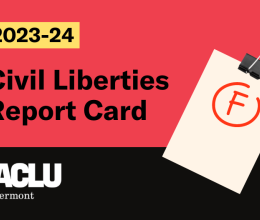Edward Snowden, a former undercover CIA employee, has stepped forward as the person who provided documents to the Washington Post and The Guardian detailing the National Security Agency's broad telecommunications surveillance. The acknowledgement came as criticism of the NSA program continued, despite arguments by government officials that all legal requirements had been followed.
 The documents described a program Vermonters and many other Americans encountered in 2006 when telecommunications companies were accused of allowing the NSA to tap into phone trunk lines to obtain “directory information” – numbers dialed, date, time and length of calls made within this country by millions of Americans.
The documents described a program Vermonters and many other Americans encountered in 2006 when telecommunications companies were accused of allowing the NSA to tap into phone trunk lines to obtain “directory information” – numbers dialed, date, time and length of calls made within this country by millions of Americans.
When the ACLU of Vermont heard of the NSA program, we filed a complaint with the Vermont Public Service Board alleging violations of the consumer privacy policies of the two phone companies operating in Vermont – Verizon and AT&T – that had allegedly provided data to the NSA.
The PSB agreed to take up the complaint, but before it could the federal government moved in and sued in U.S. District Court in Burlington to stop the inquiry. The government said the program was a state secret, and even the existence of the program could not be discussed.
Similar privacy violation complaints had been made by other ACLU affiliates around the country. And similar court actions were taken by the federal government to block those inquiries, too.
The various actions were consolidated into one case, transferred to a federal court in California, and eventually were dismissed after Congress in 2008 absolved the phone companies of any possible liability.
The congressional action brought a storm of protest, with critics pointing out that not only had Americans’ privacy likely been violated but that the congressional action made it impossible to learn more about the breadth and scope of the NSA’s telecommunications capabilities.
The shroud of secrecy that surrounded the program had been pierced, however, when national intelligence chief Mike McConnell confirmed in 2007 the existence of the spying program in an interview with a Texas newspaper. Telecommunications companies also admitted that they responded to government requests for customer phone records.
And then in 2010 the Washington Post reported that FBI memos acknowledged phone records had been obtained for the NSA through the program, and that often proper legal procedures had not been followed.
Snowden’s recent revelations pull the curtain back much further, giving Americans and the rest of the world a much more detailed picture of the scope and breadth of the NSA’s requests – millions of phone records over an extended period of time.
And it appears that the program collected more than just records of phone calls. The Washington Post said Sunday that the so-called PRISM program “has enabled national security officials to collect e-mail, videos, documents and other material from at least nine U.S. companies over six years, including Google, Microsoft and Apple….”


